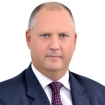Background
This white paper is a joint collaboration between Masdar (Abu Dhabi Future Energy Company) and PwC Middle East, aimed to help policymakers realise the investment needed for energy transition in the region and underlines the pathways to achieving this. The paper discusses ways to decouple market risks from regional risks, enabling major funding stakeholders to play a role in closing the energy access gap in the regions that most need it.
Through this paper, we hope to foster a renewable energy ecosystem in West Africa that has significant untapped potential in alleviating the energy shortage in the region.
Executive Summary
West Africa has a potential renewable energy capacity of 2,000 Gigawatts (GW), which could meet the basic energy needs of its population. Yet currently the region has one of the lowest electrification rates, according to a 2023 World Bank report, with 220 million people living without access to power, coupled with some of the highest electricity costs in sub-Saharan Africa. This creates an urgent demand for a pro-investment policy to kickstart renewable energy projects across the region as the only rational way to both decarbonise the economy and meet social and economic needs.

Dr. Sultan Al Jaber, Chairman of Masdar and COP28 President
“The report reaffirms the reality that a massive expansion of renewables is the only way Africa can meet the parallel goals of economic development and decarbonization. This is the only way of bridging the vast energy access gap experienced by over 600 million people in Africa, without worsening the already devastating impacts of climate change across the continent. Realising the transition to clean energy will require an integrated approach, driven by committed leadership – both on the continent and beyond it. We need to make climate finance more accessible, affordable, and available. This will mean greater cooperation at the bilateral and multilateral level, and the modernization of global financial frameworks, to catalyse funding from International Financial Institutions, Multilateral Development Banks and the private sector.”
“If the African economy is to multiply its renewables capacity by 40 times by 2050, as this report suggests, then we are in a race against time. We need to rapidly accelerate the flows of climate finance into the renewables space in Africa – bringing together public, private, and development capital to unlock the continent’s incredible potential. We believe that Masdar has a key part to play in this effort, and indeed, we are already well-established as a major player in Africa. In fact, through our Infinity Power platform, we have now become its largest renewable energy company, with a portfolio that spans the continent, from Senegal to Egypt and South Africa.”

Mohamed Jameel Al Ramahi, CEO, Masdar
Key policy recommendations: pathways to change
Any overview of the larger markets of West Africa must include a recognition of the challenges in the power sector and of the fact that there is a genuine attempt underway to liberalise the sector. However, the power sector remains at a structural disadvantage as the prices charged to customers are not fully reflective of the cost of generation, transmission and distribution. That increases off-take risk and exposes potential investors to sovereign risk, as revenues will depend on government subsidy support.
Another critical issue is the lack of transparency in awarding projects. Bilateral project negotiation rather than allocation through a competitive bidding process leads to higher chances of uncompetitive tariffs and also project delays when government changes lead to questions on the credibility of project awards.
Power-sector reform needs to move into a new phase. To achieve this we recommend:
Making electricity tariffs cost-reflective
Enabling distributed generation
Making utilities financially transparent
Procuring new projects through competitive auctions
Implementing financial incentives
How sovereign wealth funds could catalyse change
West Africa has extraordinary potential for economic growth and social development. It is rich in natural resources and has favourable demographics (70% of the sub-Saharan population is under the age of 30). Yet this potential for growth can only be realised through improved economic infrastructure. The provision of easy access to affordable power is a vital enabler of economic growth. For West Africa, that will mean the rapid deployment of lower-cost, lower-carbon renewable power and the engagement of investors who are capable of financing and executing such projects.
We believe that SWFs are well-placed to help drive forward such investments. Many already have experience in renewable power and have the financial firepower, analytical capacity and execution capability to help accelerate the transition to clean affordable power.
Many SWFs have gained extensive experience as large capital providers in emerging and developing economies with a strong knowledge of sovereign policymaking. Their specialised investment teams can work with government policymakers to identify and structure a pipeline of projects that are investment ready and SWFs can offer staple equity financing to these projects to expedite financial close and project delivery.
However, sectoral reform is the critical element that will unlock this funding. SWFs will require project development vehicles that could underwrite project construction and management risks, and that could also consolidate multiple projects into a single homogenous investment proposition. They will require the kind of policy and market reforms that give certainty on revenues in a region that remains fraught with political, market and sovereign risks.











